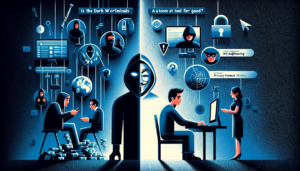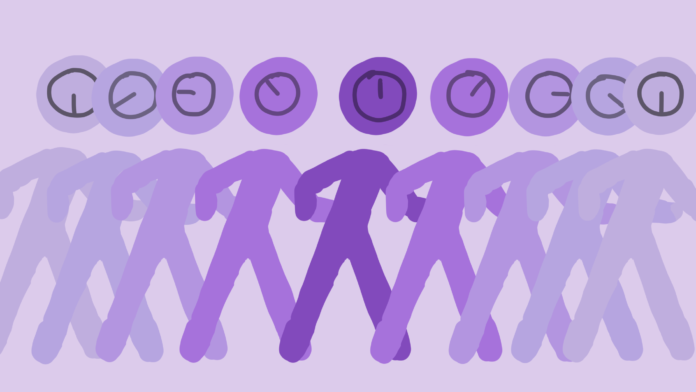Lurking beneath the surface of the normal internet lies the dark web, a labyrinthine network of hidden websites accessible only through specialized software. Often shrouded in mystery and fear, the dark web has earned a reputation as a haven for criminals, a digital underworld where illegal activities flourish like weeds in the dark. But is this image entirely accurate? Is the dark web simply a playground for the nefarious, or is there another side to the story?
The dark web’s anonymity and encryption indeed provide fertile ground for illegal activities. Drugs, weapons, stolen data, and even child pornography find ready markets in this hidden bazaar. Hackers ply their trade, offering malware and cybercrime services to the highest bidder. Terrorist groups and extremist organizations utilize the dark web for communication and recruitment, leveraging its secrecy to spread their ideologies. These illicit activities undoubtedly paint a grim picture of the dark web, fueling the narrative of a digital underworld overrun by criminals.
However, to solely label the dark web as a criminal haven would be a gross oversimplification.
Beyond just illegal activities, the dark web also offers unique opportunities. It serves as a vital tool for activists and whistleblowers operating in repressive regimes, offering them a platform to expose human rights abuses and corruption without fear of reprisal – which in some regimes constitutes death [1]. Journalists, researchers, or citizens in countries with restricted internet like China and North Korea can utilize the dark web to access censored information and communicate with sources in dangerous environments. The dark web also provides a safe space for marginalized communities facing discrimination and persecution to connect and share their experiences, especially in extremely dangerous environments [2]. The dark web can literally save people’s lives.
You could also argue the dark web fosters innovation and technological advancement. Cryptocurrencies like Bitcoin, originally conceived on the dark web, have become huge financial vehicles in the 2020s. Anonymity-preserving tools developed within the dark web have applications in cybersecurity and privacy protection. The decentralized nature of the dark web also holds promise for building more secure and resilient online platforms.
The very features that make the dark web useful for good – its anonymity and encryption – also pose significant challenges for regulation. Traditional law enforcement methods struggle to navigate the complex network and identify illegal activity [3]. Attempts to regulate the dark web often raise concerns about censorship and the potential erosion of online freedoms. Finding the right balance between protecting individuals and restricting criminal activity remains a delicate and ongoing debate.
The dark web is not simply a binary of good vs. evil, criminals vs. activists. It is a complex and multifaceted ecosystem, where both light and darkness coexist. While it is undeniable that illegal activities flourish within its confines, it would be a mistake to ignore the potential for positive change and innovation that the dark web also offers. The challenge lies in developing effective regulation strategies that address the legitimate concerns surrounding illegal activities without stifling the potential for good. This requires a multi-pronged approach that involves collaboration between law enforcement, technology experts, and civil society organizations, all working towards a common goal: harnessing the potential of the dark web while mitigating its harmful aspects.
The nuances of the dark web allow it to move beyond simplistic narratives of “evil” and work towards a future where the dark web serves not as a haven for criminals, but as a tool for positive change and innovation. This truly is a testament to the human spirit’s ability to find light even in the darkest corners of the digital world.
Sources:
- Bartlett, Jamie. The Dark Web: Cybercrime, Online Activism, and the Future of the Internet. John Wiley & Sons, 2016.
- Weimert, Gabrie. The Hidden Web: Exposing the Dark Side of the Internet. Apress, 2015.
- Russell, Mike W. Inside the Dark Web: Understanding the Underworld of Online Crime. Greenwood Publishing Group, 2017.


